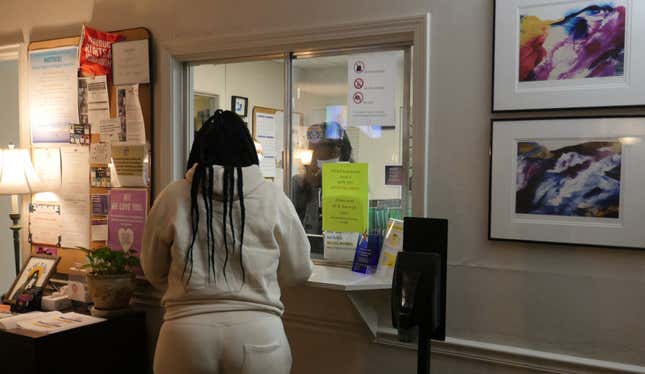Wisconsin Activist Group Used ‘Geofencing’ Around Abortion Clinics to Dissuade Patients
The group used location targeting to text Planned Parenthood patients, “Took the first pill at the clinic? It may not be too late to save your pregnancy."
AbortionPolitics

An anti-abortion group in Wisconsin used geofencing to target patients at Planned Parenthood and other reproductive health clinics with ads promoting bogus “abortion reversal,” according to a bombshell Wall Street Journal report published Thursday.
The group, Veritas Society—a nonprofit fund created by Wisconsin Right to Life—reportedly used the marketing gimmick to place anti-abortion ads in users’ Facebook, Instagram, and Snapchat feeds between November 2019 through late 2022. Geofencing refers to the location-based technique that allows advertisers (or, say, anti-abortion groups) to direct specific ads to smartphone users (and their social feeds) in a particular area. Anti-abortion groups have taken advantage of these targeted ad opportunities to reach prospective patients at reproductive health clinics and other highly sensitive locations.
Some of the ads Veritas directed at people who entered Planned Parenthood clinics in Wisconsin read, “Took the first pill at the clinic? It may not be too late to save your pregnancy.” Those who clicked on these ads were directed to a website registered to Veritas that offered them two options: “I want to undo the abortion pill,” or “I am thinking about the abortion pill.”
So-called “abortion reversal” is a medically unproven, even dangerous practice that anti-abortion activists claim can stop a medication abortion that’s underway. Targeting clinic-goers with this misinformation is especially dangerous, as medication abortion has become the most common form of abortion since Roe v. Wade was overturned.
-

-

-

-

-

-

-

-

-

-

-

-

-

-

-

-

-

-

-

-

-

-

-

-

-

-

-

-

-

-

-

-

-

-

-

-

-

-

-

-









































